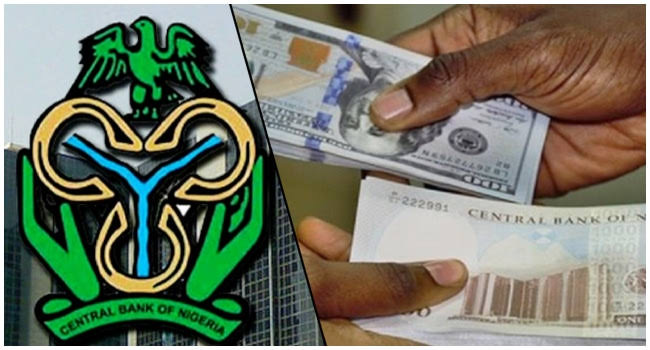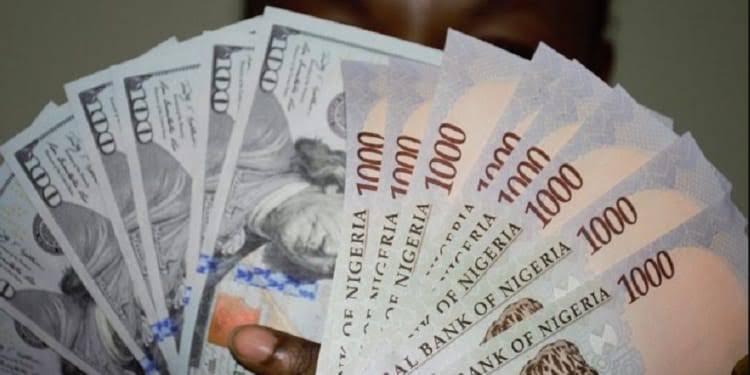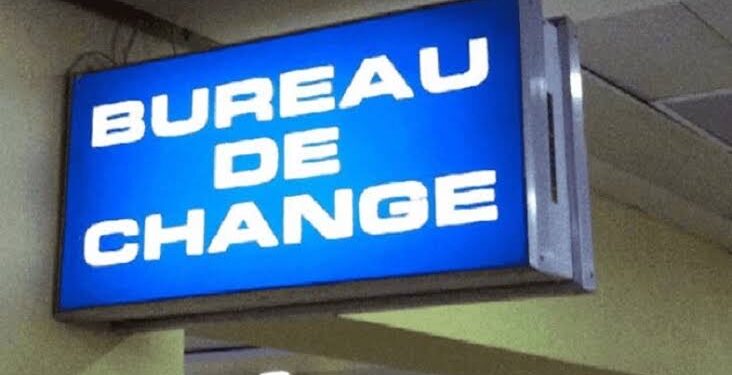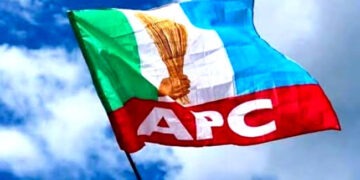The Central Bank of Nigeria (CBN) has made a significant move by announcing its plan to inject $20,000 worth of foreign exchange (FX) into eligible Bureau De Change (BDC) operators across the country.
This initiative is aimed at addressing the growing demand for foreign currency, particularly for invisible transactions in the retail market, which include payments for services such as medical bills, school fees, and travel allowances.
The CBN disclosed this development in an official statement released on Wednesday, which was signed by the Acting Director of the Trade and Exchange Department, Dr. W. J. Kanya.
The apex bank emphasized that this sale of FX would provide much-needed liquidity to the BDC sector and help stabilize the exchange rates in the parallel market, where demand has surged in recent times.
The announcement comes on the heels of a steep depreciation of the naira, which on Tuesday had dropped in value to N1,658.48 against the US dollar in the Nigerian Autonomous Foreign Exchange Market (NAFEM).

The situation was no better in the parallel market, where BDC operators were selling the dollar at an even higher rate of N1,670 per dollar, exacerbating the exchange rate gap.
In its statement, the CBN detailed the specifics of the sale, noting, “This is to inform the Bureau De Change Operators and the general public that the CBN will be providing additional liquidity to this segment of the foreign exchange market. To this end, the CBN has approved the sale of US$20,000.00 to each eligible BDC at the rate of N1,590/$.”
This rate is notably lower than the current market rates and is aimed at easing pressures in the FX market while addressing the demand for retail transactions.
The central bank also placed a strict condition on how much profit BDC operators could make from the FX sales. “All BDCs are allowed to sell to eligible end-users at a margin of NOT MORE THAN one percent above the purchase rate from CBN,” the statement read.
This essentially means that BDCs are restricted to a maximum profit of N15.59 per dollar, ensuring that the rates remain competitive and accessible to the general public. This measure is specifically designed to curb the rising exchange rate premium observed in the parallel market, where rates have significantly diverged from official rates.
In addition to announcing the sale, the CBN outlined the procedures BDC operators must follow to participate in the transaction. The operators are required to make the naira payment for the FX purchase to the CBN’s designated deposit accounts.

Once payment is confirmed, the necessary documentation for the FX disbursement must be submitted to the appropriate CBN branches, including those in Abuja, Awka, Kano, and Lagos, for collection of the allocated $20,000.
“Eligible BDCs interested in this transaction are directed to make the Naira payment to the CBN Deposit Account Numbers with them. Also, payment confirmation and all necessary documentation for disbursement are to be submitted at the appropriate CBN branches for collection of the $20,000.00. Please be guided accordingly,” the statement concluded.
This latest intervention marks the seventh attempt by the CBN to sell foreign exchange to BDC operators since the apex bank lifted its suspension on the sector earlier in the year. The initial suspension of FX sales to BDCs, which was implemented in 2021, was part of a broader effort to curb illegal FX activities and stabilize the market.
However, with the revocation of over 4,173 BDC licenses in February, the CBN has since allowed the remaining 1,583 approved operators to re-enter the market.
The $20,000 allocation per operator could result in a total injection of approximately $31.66 million into the retail FX market, providing much-needed relief to end-users who rely on BDCs for their FX needs.
This injection is expected to improve liquidity and reduce the pressure on the parallel market, potentially narrowing the widening gap between official and black-market rates.
Despite the CBN’s intervention, the naira continued to depreciate on Wednesday, dropping by an additional N9, or 0.53 percent, to close at N1,667.42 per dollar in the NAFEM, compared to the previous day’s rate of N1,658.
This further depreciation highlights the ongoing challenges in the FX market and the difficulty in achieving currency stability amid economic headwinds.
The CBN’s move is seen as part of a broader strategy to stabilize the naira and manage inflationary pressures, which have been exacerbated by a combination of external factors, including global inflation, rising crude oil prices, and domestic fiscal challenges.
The sale of FX to BDCs is expected to provide temporary relief, but experts caution that more comprehensive measures may be needed to achieve long-term currency stability.
In the meantime, the CBN remains committed to monitoring the FX market closely and taking further action as necessary to ensure the stability of the naira and the overall health of the Nigerian economy.

































